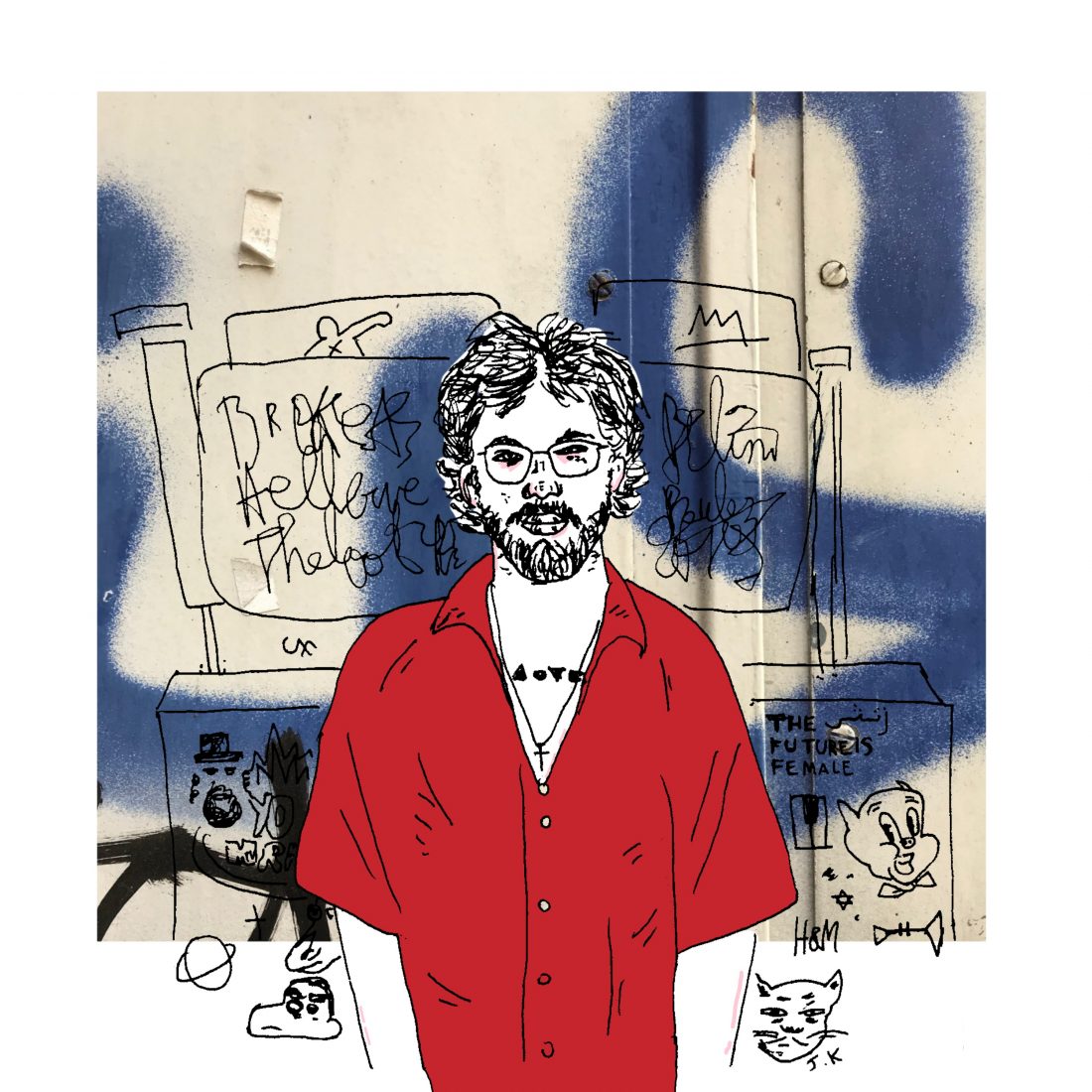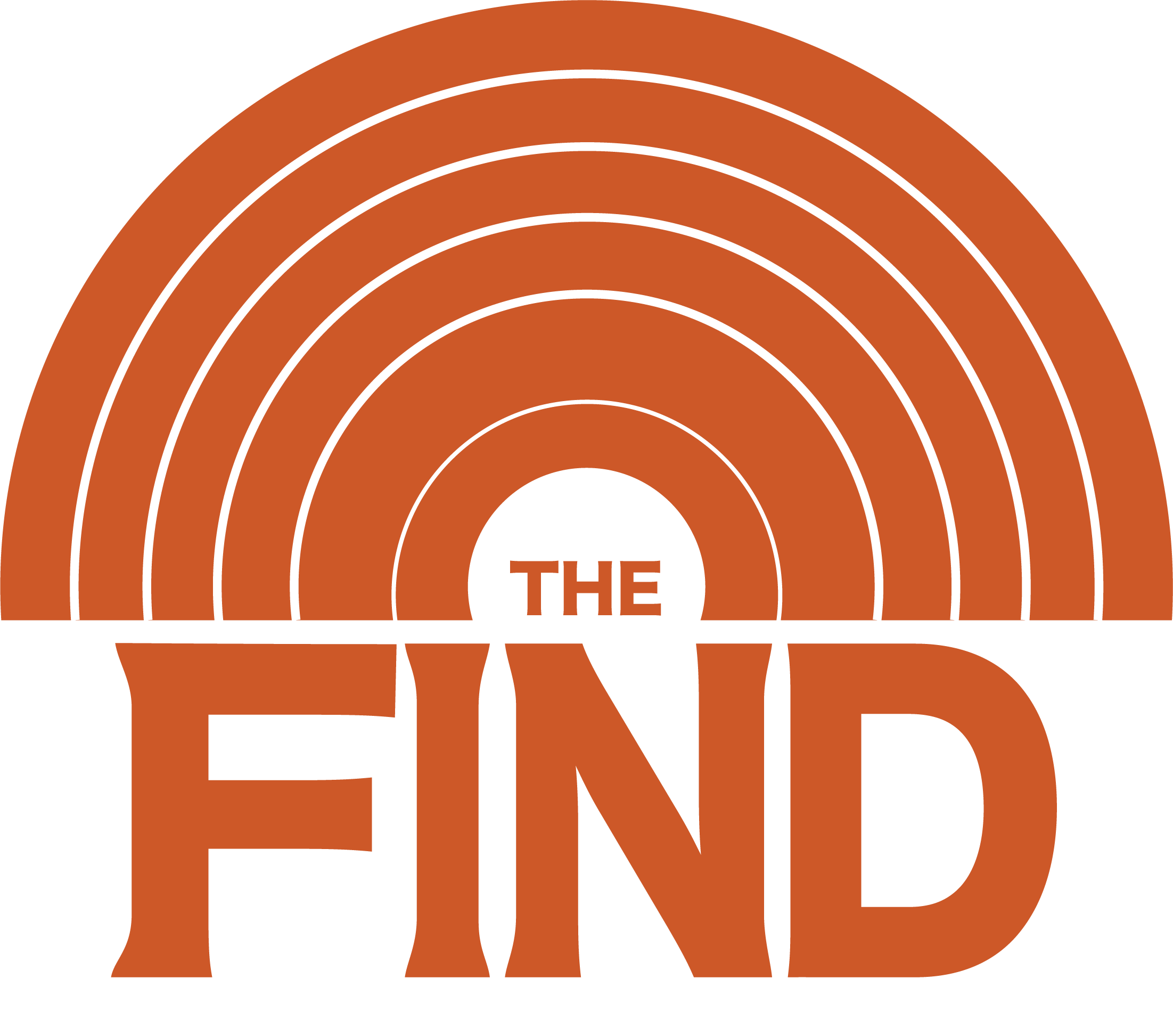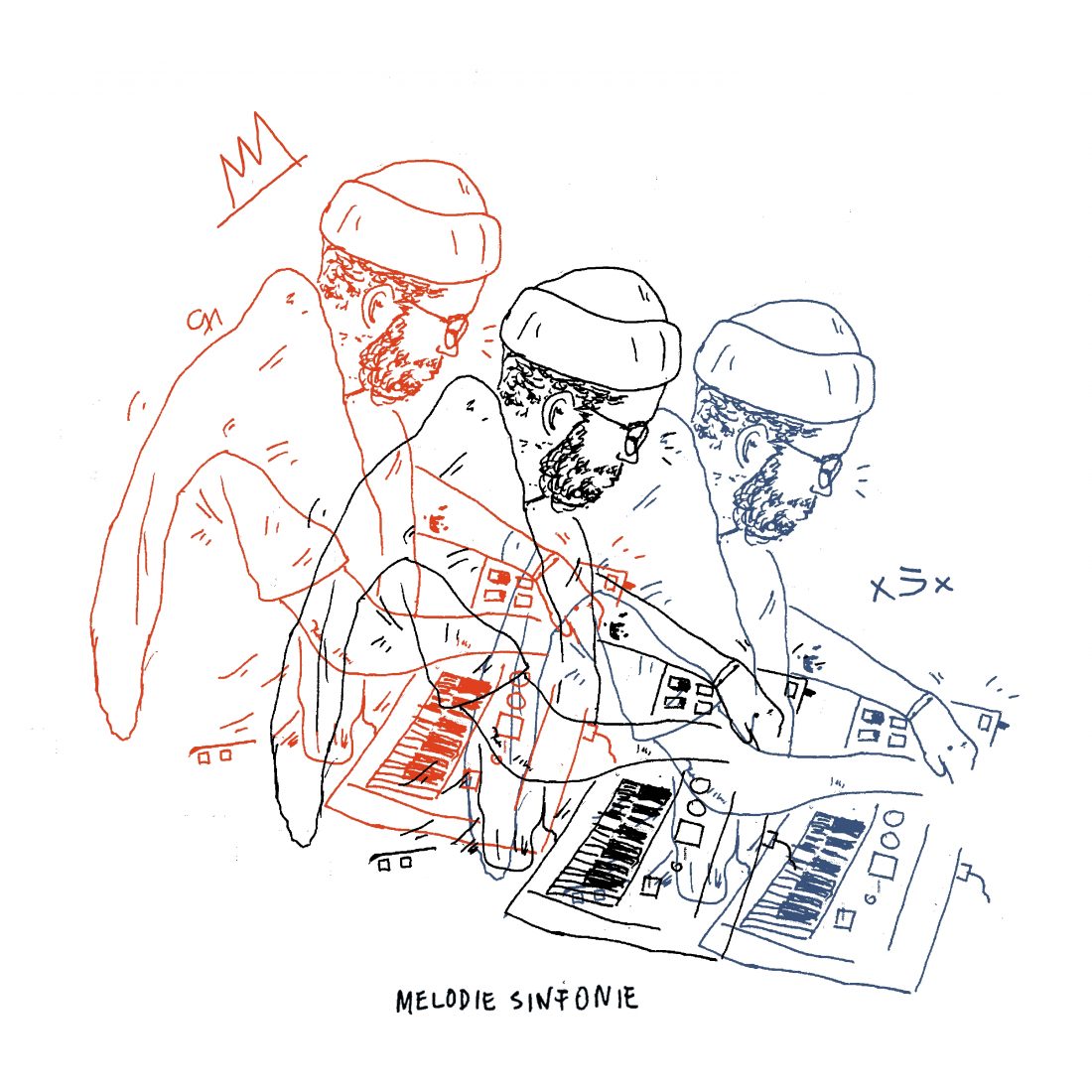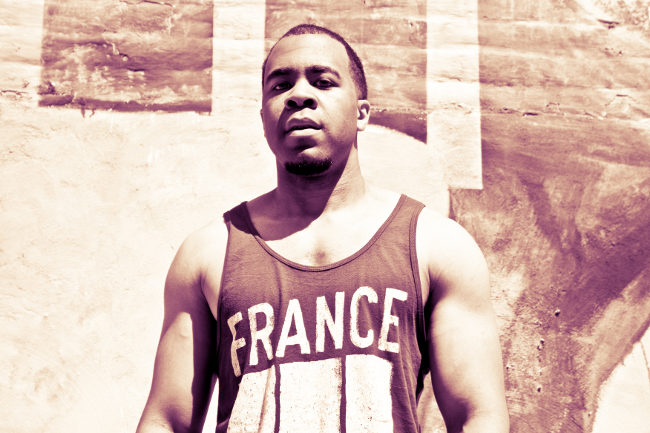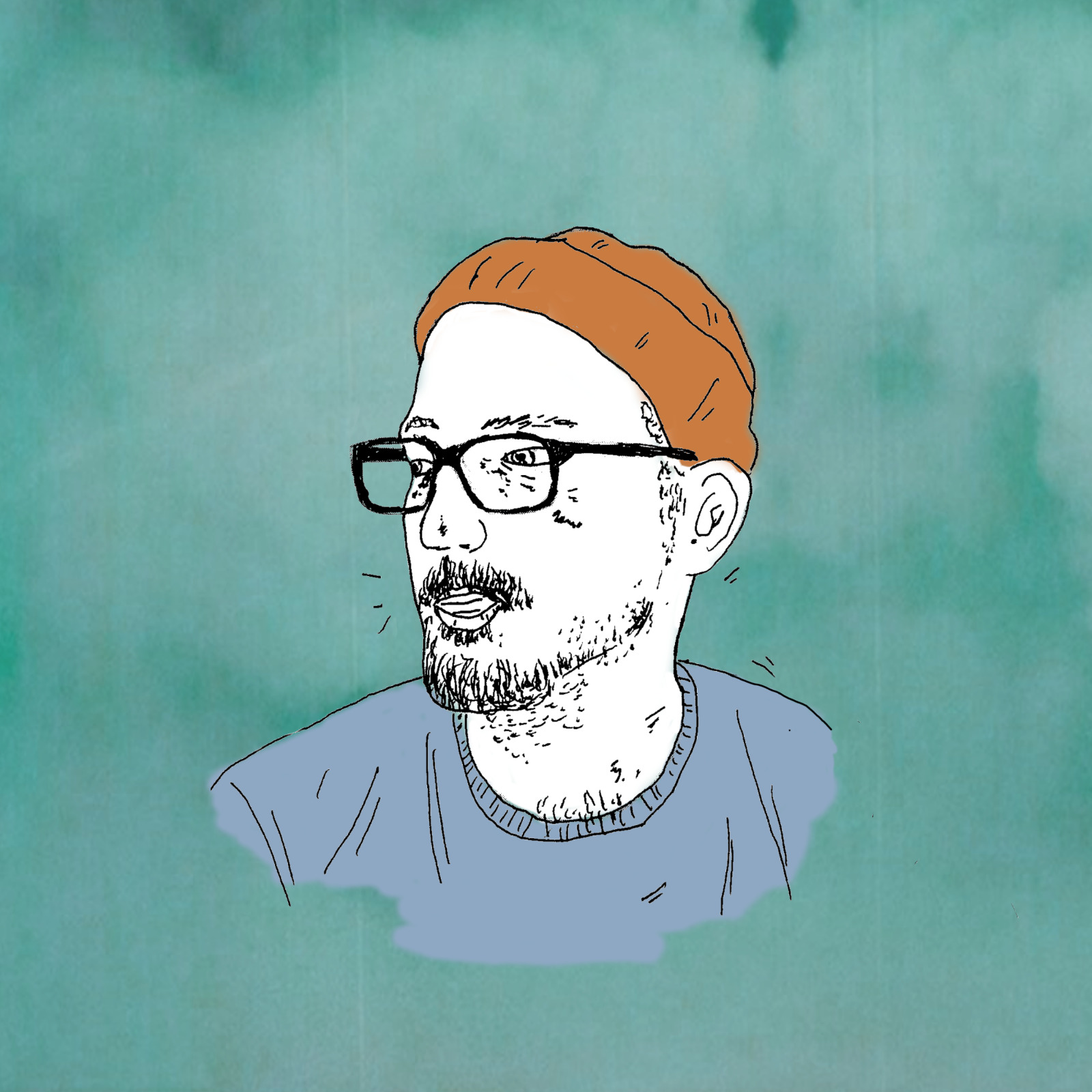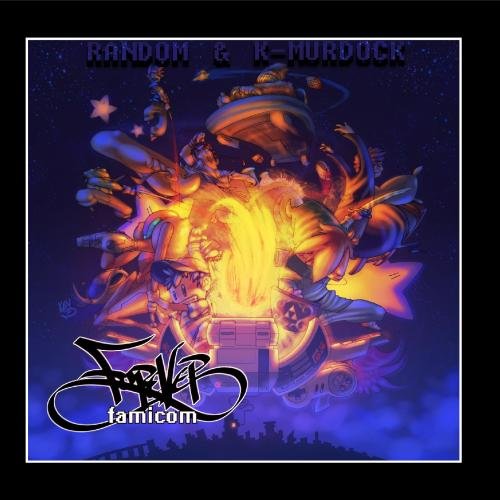Interview: Melodiesinfonie (The Limelight #2)
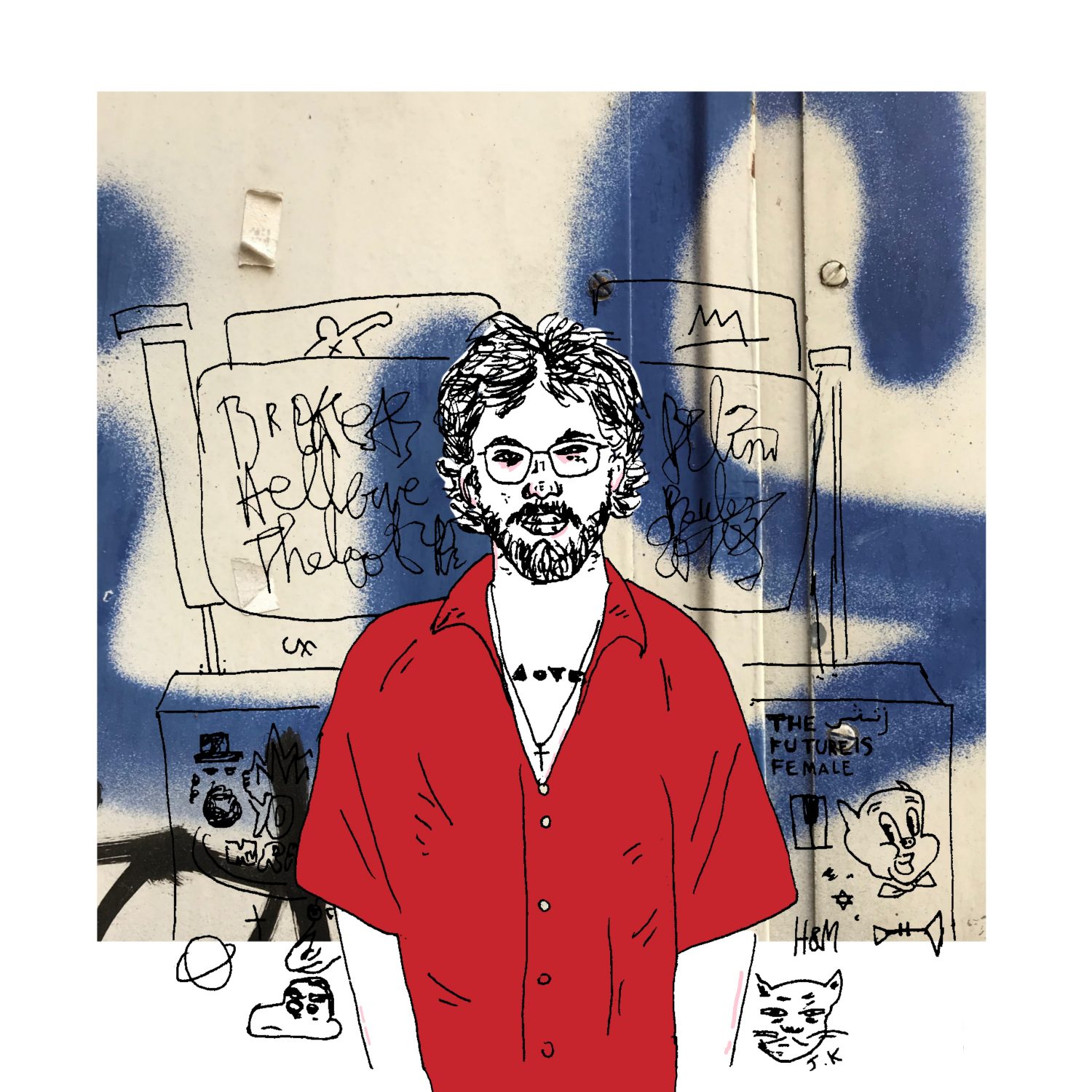
The Limelight is an ongoing collaboration with illustrator MC Blue Matter. Sparked by a mutual love for beats, the series shines a light on the people behind the productions.
A Journey To You marks somewhat of a rebirth for Swiss producer Melodiesinfonie. The album is characterized by an organic sound with elements of hip-hop, jazz, house, soul, and disco. Performed live with a newly formed quartet–with Melodiesinfonie himself on drums. He seems to be breaking out of a cocoon of beats and loops to spread his wings as a multi-faceted musician and producer.
No wonder he uses the word “journey” quite regularly during our interview. Not because someone told him to surreptitiously promote his new album, A Journey To You, but because it’s a thread through all of his music: he doesn’t only create melodies but also conducts the symphonies of life as an integral part of his music.
(Interview: Danny Veekens | Illustrations: MC Blue Matter)
I attended your gig in London two months ago. During the show you talked about how you initially wanted to make a jazz album, but that you found out you weren’t ready yet. What made you realize that?
I started with A Journey To You at the beginning of 2018. I was listening to a lot of cosmic and spiritual jazz, bebop, and modal jazz from the 60s and 70s such as Coltrane, Pharaoh Sanders, Lonnie Liston Smith… That really influenced me, so I wanted to make a jazz album. Also to break out of beatmaking a bit; to be recognized more like an open musician. I didn’t want to have the stamp of being a “beatmaker.”
I started some compositions and they were–and still are–really nice. But it felt forced. It wasn’t natural; I really tried to get to that sound. That’s when I realized that was kind of wrong. It wasn’t the full me, it was only a fragment of who I am. When I came to that realization, it was a real eye-opener: I don’t need any boundaries, I don’t need to make “a jazz album” or whatever. I just make music.
So I ditched the idea of making a jazz album. That’s when I had the first two compositions for my A Journey To You album: “Feel Me” and “AO Longo Do Rio.” For me, those tracks were the perfect fusion of musical and jazzy, but still connected to who I am: I still love beats and those kinds of hip-hop grooves.
Does it bother you that people call you “a beatmaker”? I mean, you also drum, play multiple instruments, compose music…
I know what you mean. Well, right now I’m over the feeling of being annoyed by that. There was a time I really wanted to separate myself from being “a beatmaker.” That was just because of the whole Lo-Fi movement of people doing all the same boring music with the same samples… I was just a little bit frustrated as well as overwhelmed about the fact of how many people were making lo-fi beats.
I think that’s why I tried to separate myself. But right now I’m like, whatever, you know. I do music, and if my music touches someone: that’s the main goal. It’s not about what I am or what I represent. But yeah, beatmaking changed so much. When we talk about beatmakers, I grew up listening to guys like Suff Daddy, Full Crate… All these guys who made beats in the period of, like, 2009 till 2012. That was a completely different spirit and ethos.
Is that also why you wanted to make a jazz album?
[laughs] Yeah, I guess… But then again, I also thought from a mental perspective, that it could come across as “arrogant” to try to separate myself from something. And I don’t want to be arrogant. Right now I’m cool with it all. If someone is happy making lo-fi beats: go for it.
Still, perhaps not intentionally, but I personally think A Journey To You actually does separate you a bit from being “a beatmaker.” I mean–it’s super silly to put labels on it–but it doesn’t feel like a beat tape. It’s an album. There’s a bit of jazz, soul, a bit of house, a bit of bossa nova…
Yeah, and a bit of disco.
Exactly.
With this album, it was very important to try to get out of that “I make beats and loops”-structure. Instead, to make an album with actual songs. Still with beat elements, but in the future, I want to make songs. I want to tell a story with each track. Even if it’s instrumental.
Sure, I still have loopy beats, but I work more and more with musicians. The exchange with different musicians is a really open-minded way of making music. It extends my musical horizon. That’s what I love the most of making music: going on a journey together without knowing where it’s going. That’s also the feedback I get from many listeners: that it feels like the next step compared to my album Be Thankful in 2016 [on Melting Pot Music]. Secretly, that’s the effect I wanted to achieve!
Did you manage to completely let go of the idea to create a jazz album? Or is there still a little voice in the back of your head whispering “you need to make that jazz album, Kevin…”
Maybe… I still have the compositions. I’d love to perform them one day with the band or to record them. The compositions are very open and they have a lot of space. So I’ll probably circle back to them one way or another. What I’m thinking now, though, is to make a live album with the band. Producing it with loops, but at the same time really free as a studio session. I’d love to play four or five live pieces from the tour for the album, combined with improvisations. And to release it as an A Journey To You live session. But first, I’m doing so many other things right now.
Such as?
Practicing instruments a lot. I just started playing the guitar again. I used to play it three years ago. But for some reason, I stopped doing that. I don’t know why. But I picked it up again. I also started playing the bass which gives me a lot of new perspectives and inspiration for producing music.
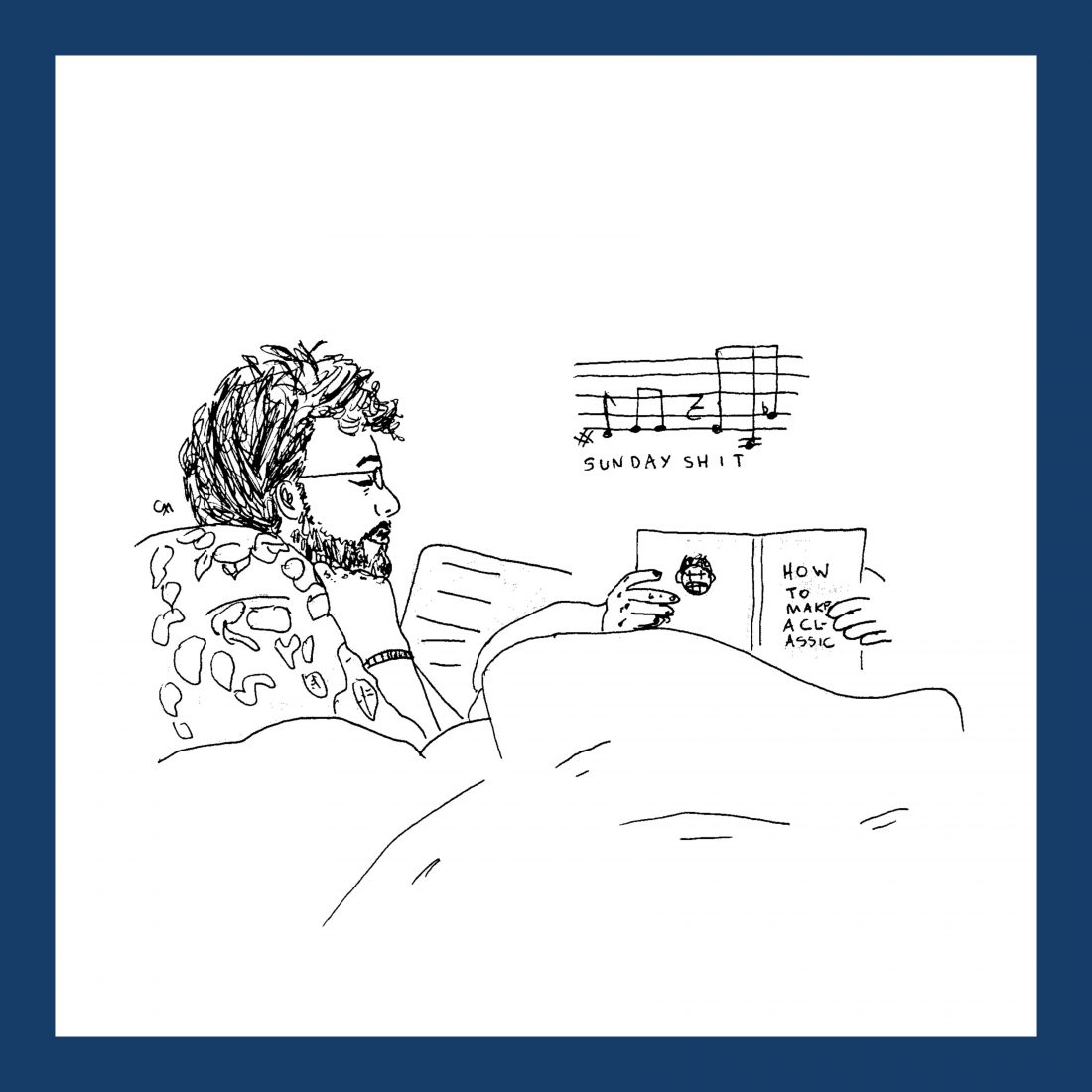 Can you give an example of the new perspectives these instruments give you?
Can you give an example of the new perspectives these instruments give you?
For the guitar, I play different chords than I play on the piano. And I play different patterns and rhythms. You can’t do the same on the piano as you can on the guitar. For example, if you take a bossa nova rhythm, on the guitar it sounds so natural.
Since I started playing the guitar again, I also started to do more singing! It’s very cliche, but playing the guitar and singing matches so well… So I’m working on a new EP which is kind of dreamy, psychedelic, indie pop–whatever you want to call it. Playing the guitar opened a whole new vibe.
Sounds like you’re very musical. Do you come from a musical family?
When my dad was in his 20s, he did music production. Very weird stuff actually, such as making music for pantomime shows. He was always experimenting. He played a little bit of guitar as well. Around his 30s, he started to get deeper and deeper into the hi-fi scene: experimenting with speakers, cables, amp tubes… He’s always been a real music lover. He had–and still has–a crazy record collection, too. What he taught me was to really listen to music. To sit down, and to listen closely. He used to play music for like five hours a day.
So he also took you along on his hi-fi adventures?
Since I was about four years old, I’ve always been surrounded by music and by his crazy hi-fi speakers. At that age, I already got a record player and tape recorder standing there in my room. So for me, it was always normal to hear the best possible sound. That helped me with producing music: most of the stuff I do now is by ear.
Did your parents encourage you to play music yourself?
At the age of eight, I had to play the flute. You know, the one made of wood…
Yeah, the boring one. Same here.
[laughs] Exactly. It’s such a cliche that pretty much all kids in Switzerland have to play the flute at school. It’s like, “if you wanna play another instrument, you HAVE to play the flute first.” But when I turned twelve I started to play the drums. I had a school friend, and her dad had a drum kit at home. I played it for the first time at the age of eleven and I was totally fascinated by the sound and by making rhythms. So I told my dad and we bought a drum kit, and I had drum lessons for about five years.
Right now I’m actually trying to get into university for jazz drumming. It’s quite ambitious; it’s pretty tough to get in. Also, I’m 26 years old and already almost too old for university here in Switzerland…
Have you played the drums ever since, or is it something you’ve picked up again for A Journey To You and the recent live shows?
I stopped playing the drums four years ago because I moved out of my parents’ place. So the drums were there. But in 2017 I was performing as the support act for Yussef Dayes. When I saw him drumming, it was like a moment of enlightenment. Shortly after I bought a drum kit–the one at my parents’ was very rock-based, so I bought a new jazz kit. I have a room for it now. Since then, I practice every day!
In which way did Yussef Dayes inspire you to pick up drumming again?
The way how he plays grooves is outstanding. There are a lot of crazy drummers, but to me, Yussef Dayes is a master in playing very dynamic grooves while staying true to that kind of hip-hop vibe. It’s so jazzy and so organic… That really influenced me. I see myself as well as more of a ‘groove drummer’ rather than a crazy solo guy.
“Hip-hop is my heritage, you know. I’ve done this finger drumming thing for about seven years now. I still love it. If you work with drum samples, it’s often still more kicking than acoustic drums.”
During your show in London, you mostly played drums. But there was also a short set of finger drumming. I can’t remember, was it an SP-404?
It was Ableton Push, actually.
Check! Are you going to keep doing this, or can we envision Melodiesinfonie in a few years strictly drumming, ditching drum machines?
That was actually my first thought: to go with a fully acoustic drum set. But you know, hip-hop is my heritage. I’ve done this finger drumming thing for about seven years now. I still love it. If you work with drum samples, it’s often still more kicking than acoustic drums.
Are there any specific records which influenced your new take on producing music?
Mainly two records by Lonnie Liston Smith And The Cosmic Echoes. One is called Expansions and the other one Visions Of A New World. Also, a friend of mine gave me a bootleg of Pharoah Sanders’ Harvest Time. He plays together with a guitar player called Tisziji Munoz and it’s one of the most amazing jazz pieces I ever heard.
And lately, there are a lot of bands from London that influence me. Such as bands from 22a records like Tenderlonious or Ruby Rushton. And then there’s a jazz band called Maisha by drummer Jake Long. They’re all in heavy rotation.
Besides that, the last few years I also discovered a lot of psychedelic rock from the 70s. I got some records from my dad since he was listening to a lot of fusion and psychedelic rock as well. In some ways, that has an impact on me, too.
Which records did you get from him that made an impact on you?
One of them is by Glass Harp, a psychedelic band from the 70s. They’re really amazing. There was also an Eric Clapton live album called E.C. Was Here. He played that to me many, many times. Aside from that, there were a lot of jazz records I got from him by Dizzy Gillespie, Lucky Thompson, Dusko Gojkovic… He listened to a lot of European jazz. All names I still remember.
Back in the day at home, there mainly was jazz playing. 24/7 there was swing at home… Bebop and swing allll day. So when I was a teenager, I was so tired of that shit. So I started listening to punk! Music like The Clash and Sex Pistols. But then I discovered hip-hop, and through that, I eventually discovered funk, soul, and jazz. So right now, I also like that very same jazz swing I rebelled against as a kid. [laughs]
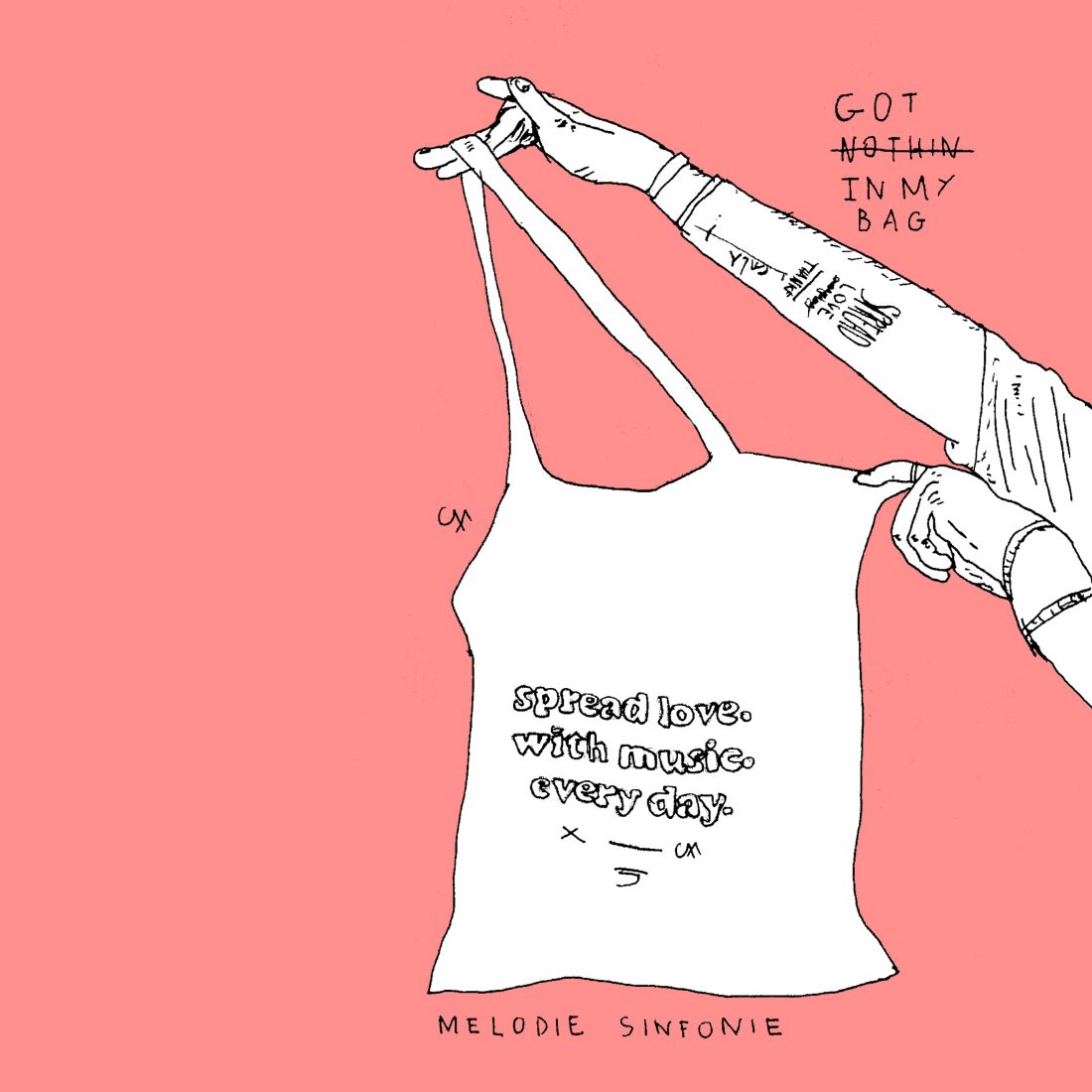 It might be too abstract to put in words, but how did those Lonnie Liston Smith and Pharoah Sanders records influence your own music?
It might be too abstract to put in words, but how did those Lonnie Liston Smith and Pharoah Sanders records influence your own music?
On one hand, they inspire me musically. But on the other hand, the deepest influence is related to their philosophy: to go back to the roots and to see music as something spiritual. To be able to connect people to a transcendent world through music. You also find that especially in John Coltrane’s music–such as obviously on A Love Supreme. There are interviews with musicians like them about how music was a reality they could change. That influenced me the most. That’s also where the title A Journey To You comes from. It is something spiritual.
Do you consider yourself to be a spiritual person?
Yes, definitely.
Religious, even?
Well, it depends on how you define that. ‘Religion’ comes from the Latin word ‘Religiō’ which means to connect. I grew up as a Christian. But my dad was never a member of a church. He was more like a hippie, very open-minded. I’d say he was very anarchistic in that sense.
But I’ve always been reading a lot of philosophy and theology books. When I was sixteen I started to have a lot of questions and started reading a lot of philosophy books. Nietzsche, Kant… But I also read the Koran, the writings of Buddha, Hinduism writings, the Bible… I was always very interested in religious thoughts and how they relate to the times we’re in today.
I think I am a very critical person; I always re-think stuff. As soon as I’ve read something, or when I think I have a new revelation, it only takes days before I start questioning it. For me, it’s a flow of different reasons, different thoughts. That’s also why I called my album A Journey To You: it’s a journey to the source of who you are.
A journey to the source of yourself, or a journey for the listener?
Both. I’m not the source; I’m only a piece, a fragment of the absolute reality. But when I’m on a journey to that reality, I’m on a journey to myself as well. So it’s connected. I believe in an absolute reality, but I also believe we have a way to connect. But at the same time, it’s all a mystery.
That’s, of course, a never-ending personal journey: but if we consider your album to be the outcome of it so far, where did it take you?
It brought me a new standard of how I want to produce music. Where I want to go. I received a lot of messages in the last few weeks of people saying the album touched them in certain ways. That’s the most beautiful feedback I can get. Doing live shows, how many records I sell–that’s not important. Well, it is, because I’m an independent artist. But if my music touches one man, one woman–whoever. Man, that’s so humbling. I think that’s the most beautiful thing ever.
